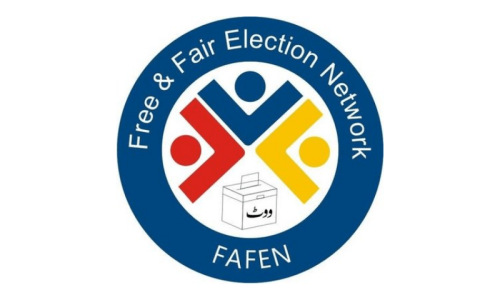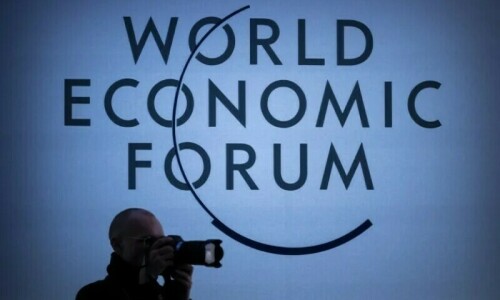PASHTUN poets, writers, linguists, research scholars and intellectuals put their heads together in Peshawar Nishtar Hall on April 6 and 7 to discuss solutions to problems and issues confronting Pashto and Pashtuns across the globe. The second two-day World Pashto Literary Convention, jointly arranged by Pashto Adabi Chaman Tall and the culture directorate, Khyber Pakhtunkhwa, attracted about 200 delegates from Afghanistan, UK, USA, Canada, Germany, Australia, the Gulf states and from all over Pakistan.
Senior poets and researchers Hamish Khalil and Salim Raz inaugurated the literary moot and Mian Iftikhar Hussain, the KP minister for information and culture, in his speech asked poets and writers to address social ills instead of merely admiring a woman’s beauty and romanticising nature. “Writing is a skill; use this rare talent for expressing people’s issues because this can bring a change in their outlook and can shape their ideals towards nation building,” he said. Professor Aseer Mangal, the convener of the conference, also called upon the participants to play their role in resolving social issues and help the Pashtun nation out of the present difficult situation.
Scholars and Pashto language experts read papers on various aspects of Pashto language and literature and reiterated their pledge to continue to work for the promotion of literary and cultural activities to combat terrorism in their war-ravaged region. Poet and Afghan cultural attaché in Peshawar, Parveen Malal, said that such gatherings should resolve literary and cultural issues. Commenting upon the low representation of women in the conference, Malal called it a pity and said that “Pashtun women have great potential; they just need encouragement and appreciation.”
Haseena Gul, a writer from Mardan, also lamented the lack of female participation in the event and pointed out that Pashtun women writers have never lagged behind in any field.
“Times have changed. The Pashtun society has undergone a radical change during the past few decades. Right from Khushhal Khan Khattak’s time, who encouraged his daughters to compose poetry, many female Pashtun poets and writers are contributing to not only literature but every sphere of life. Male writers too should make it their responsibility to highlight women’s issues,” she added.
Other than women’s issues, the participants commented on challenges facing Pashtun culture and identity. Shuhrat Nangiyal, a participant from the UK, pointed out that Pashtuns face many political issues, most of which are linked to their language and identity. He added that social institutions, such as the hujra, jirga, folk music and dance, all are at stake:
“We need to save our language and identity. Unless we do so, our survival in the global village as a vibrant Pashtun nation shall remain a big question mark. Therefore, comprehensive research on Pashtuns and Pashtunwali [Pashtun’s code of life] is the need of the hour.”
Noted Germany-based Afghan linguist, Pekhawarai Shinwari, who runs a Pashto language school, criticised Pashtuns for lack of interest in their language: “The problem with most Pashtuns is that they don’t practice Pashto writing which is why they cannot read the Pashto script and thus remain deprived of the knowledge housed in Pashto books. It is not rocket science; I can even make Germans write Pashto script in 15 minutes. All that is needed is a little bit interest in our language and culture,” he stressed.
Commenting on a unified Pashto script, Professor Rajwali Shah Khattak said that the Pashto language has many accents and local dialects due to its different geographical locations. “A unified script was evolved in 1990 at the week-long Bara Gale seminar in which Afghan linguists had also participated. For written expression and media purposes, scholars recommend only this script of 43 letters,” he said.
Other topics that came up for discussion included the influence of global trends. Young writer Arif Tabassum from Loralai, Balochistan, said that the rejection of literary terms or phrases from other languages, including English, needs to end. He argued that Pashto has the capability to assimilate foreign words and literary genres into its fold: “It will further enrich our language and literature. The fear that we shall lose our identity is unfounded in today’s rapidly changing global scenario; we have to go with the flow.”
Faisal Faran from Karachi discussed mythological references in Pashto literature, claiming that Hafiz Alpuri was the first to use fables and legends in his poetry. “Using such references enrich poetry and fire he imagination of the readers,” Faisal said.
Dr Liaqat Taban, who came from Quetta, brought up the portrayal of the Pashtuns in the media. He told the gathering that there are 12 television and 80 radio channels across the world airing programmes in Pashto language. However, he added, “none of these media outlets are owned by Pashtuns. There are billionaires among Pashtuns. We should have a strong media house from where we can project our true image to the world.”
Dr Abdur Rauf Rafiqi proposed that there should be one institution supervising research on any aspect of Pashto or Pashtun. “I have in my knowledge that four scholars were doing research in Kabul on one topic which I believe is a wastage of time.”
At the end, 100 old and new Pashto titles were launched. At the joint declaration, scholars were unanimous on a unified Pashto script, a single research body and on jointly promoting literary and cultural activities to beat militancy and establish peace in the region. Sadiq Zarrak, Rokhan Yousafzai, Umar Gul Askar, Mohibullah Shauq, Professor Dr Yar Mohammad, Professor Mahmood Ayaz, Professor Dr Zubair Hassart, Professor Dr Mohammad Azam and Professor Dr Hanif Khalil also spoke at the gathering.














































Dear visitor, the comments section is undergoing an overhaul and will return soon.